The making of Red Orchestra
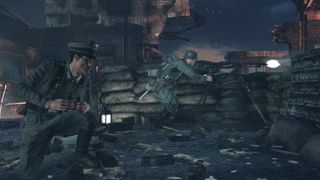
It's 1941 and Nazi Germany has just invaded the USSR, its erstwhile ally. SS counterintelligence soon detects a range of radio signals from communist and socialist sympathisers, embedded at all levels of European society. Since the SS call transmitters 'piano' and supervisors 'conductors', they name this nascent resistance network the Rote Kapelle – the Red Orchestra. Despite early successes, it is soon crushed.
Jump forward 60 years. It's now 2001 and indie development is dying. The big publishers are forcing more independent studios to sell up, small developers struggle to get their games on the shelves, and the new chain games stores are squeezing the PC out. The modding community has reached its high point with Quake and Half-Life, but even this growth is decelerating as indie teams struggle to convert their online popularity into full-time contracts. It's a bad time for PC gaming all over.
It's in this harsh environment that Red Orchestra is born.
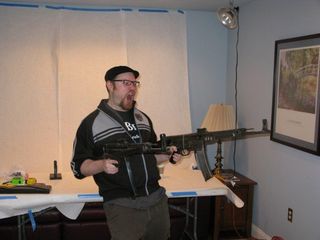
In 2001, the people who would one day found Tripwire were just a handful of keen modders, scattered around the world. Alan Wilson was in London, Dave Hensley in New York, Ingmar Spit in Holland, the rest mainly in America. Who actually started the mod isn't clear, longest-serving team member William 'Bill' T Munk II, who joined in 2002, is as lost as the rest of them. “Oh, it's prehistory, man.”
Initially, the plan was for the mod to be a stealth game, hence the Red Orchestra title. Mods in those days tended to coalesce on modding forums, so the early RO hopped between designs and engines like a gadfly with an itch.
John Gibson, lead programmer, recalls why they made it. “No one was making the game we wanted. A lot of the 'realistic' shooters played like Quake with WWII weapons. We introduced a whole bunch of revolutionary things that are common now: 3D ironsights, proper ballistics, realistic player movement, player damage... ” Gradually though, after trying the Medal of Honour and Soldier of Fortune II engines, the team settled on Unreal Tournament and an emphasis on realism.
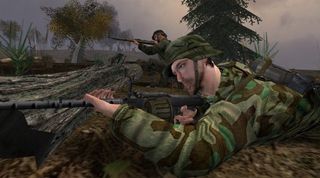
This choice allowed them to enter the Make Something Unreal competition, with its muchtrumpeted $1,000,000 prize, and changed their lives forever.
The biggest gaming news, reviews and hardware deals
Keep up to date with the most important stories and the best deals, as picked by the PC Gamer team.
At the time there were perhaps 60 people working on the project, a huge talent base for a mod. “We had great animators, researchers, programmers, designers,” John recalls. “But then every team has guys who only show up in the IRC channel... there were probably 20 full-time producers, 20 who would do something cool occasionally, and 10 or 15 who were worthless.”
“And one or two who were worse than worthless,” puts in Alan, the lead historical researcher and now vice-president at Tripwire.
“There are at least two or three I would physically harm if I saw them,” John continues. “When we started winning, we were winning computers. One unproductive level designer claimed it was because his computer was slow, so we sent him a precious new computer. Of course, he then ran off into the sunset with his shiny new PC.”
All that said, 85% of the core people still work or contract for Tripwire Interactive.
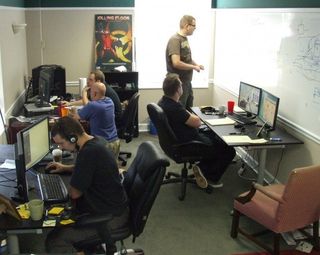
Clone wars
Oddly, the team sat out of the first round of Make Something Unreal. But having seen the competition, they realised that they were way ahead of it. “The road to modding superstardom is littered with corpses of Counter-Strike clones,” says John. “All the other mods at the time, working on newer engines, were six months behind us... Our game, graphically, was the Crysis of its day.”
The 1.0 version of the mod was released in 2003-4 and well received by the community. Meanwhile, the team were winning every phase of the Make Something Unreal contest, and the success quickly went to their heads. “We got cocky,” says John. “We saw ourselves as the juggernaut that was going to destroy all comers.” As they got complacent, the other mods started to catch up. “I thought we were going to lose; so I got a group list of the top ten things that another mod will have that will beat us. I then took this and said 'We're going to be this mod; we're going to make these ten things and put them in our game. And we did.”
To finish these elements, several of the core team quit their jobs, and worked 16-hour days for the final six months, while family and friends were telling them they were insane.
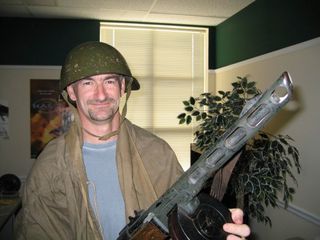
They won. “It was the Willy Wonka Golden Ticket,” says Bill, “indescribable exhilaration, vindication.” John was equally excited but he remembers getting hate mail “...after we won the infamous 'million dollars'.” It turned out the prize wasn't anything near a million dollars; most of that had been spent on the competition and prizes, or was tied up in the licences they'd won. So the team founded their new studio, Tripwire, on just $30,000.
The new cell
They started it in Atlanta. Three of them moved on site, others worked remotely. They expected the money to last three months – long enough, as there would be “Publishers beating down our doors to throw millions of dollars of cash in,” in Alan's words. “We spent the first two weeks playing videogames and going 'what do we do now?' So naïve. Now we know that even a consensual deal might take three-six months to get the contracts through.”
A few publishers did beat down their doors, but not with offers the team found attractive. The money ran out. They still didn't have a deal. Then they saw Steam, which back then Valve were just using to sell their own games. John contacted Doug Lombardi (Valve's marketing director) and it turned out that he knew about Red Orchestra and wanted to talk about giving them a very good deal. That was the turning point.
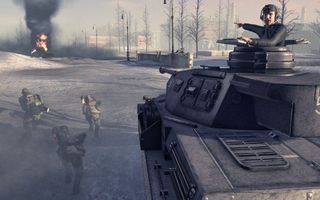
Now they just had to finish the game, turning it from a mod into the standalone Red Orchestra: Ostfront 41-45. With a route to the gamer at last, the team scraped together as much money as they could. Alan mortgaged his house, others maxed out credit cards or borrowed money. “We put together a small but terrifying amount of money,” says Alan. It took another six months to finish the game. They offered the external contractors a deal where they would pay them a 50% bonus if they took their money after the game shipped – another big gamble. Meanwhile, the art team all lived in one apartment, sleeping on mattresses in the living room. “It was a crazy time, huge amounts of fun, even if I had to live off my savings,” says artist David Hensley.
Mission successful
In March 2006, five years after work on the mod started, Ostfront was finally released, in the shops and as the third game on Steam, selling over 400,000 copies. What kept it selling in the months that followed was the amount of free features the team developed. “We doubled the content after shipping,” says David.
“A lot of people think of digital distribution like a Walmart shelf,” Alan explains, “but you've got the opportunity to keep upgrading things. The sales the updates generated gave us the cash to keep going.”
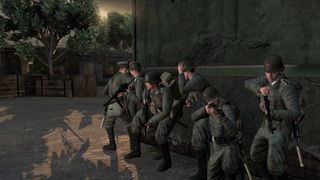
This, and the money they made from publishing the hugely successful Killing Floor, allowed Tripwire to start the project they always wanted to make: a full, properly-funded version of Red Orchestra. RO 2: Heroes of Stalingrad is going into beta very soon, and Tripwire, always conscious of their community, have already seeded the dev tools with various modding teams, so they'll have time to generate the high polygon models necessary for modern games. “We'd like to see the first big mods out a few months after the game, not two years later,” says Alan. “At the current rate, we'll have Rising Storm (Japanese vs Americans in the Pacific), a Vietnam conflict game, plus there are a bunch of others as diverse as World War I and the Warhammer universe.”
It still might not have anything to do with spies, subterfuge or radios, but Tripwire's Red Orchestra series has blazed a trail for both modders and the modern indie Steam developers. Along with Valve, they ferreted out the secrets of self-publishing from under the noses of the big publishers and made the world a better place for everyone who loves PC games. They've already shown that quality and enthusiasm count; we're intrigued to see where they go next.
Most Popular



